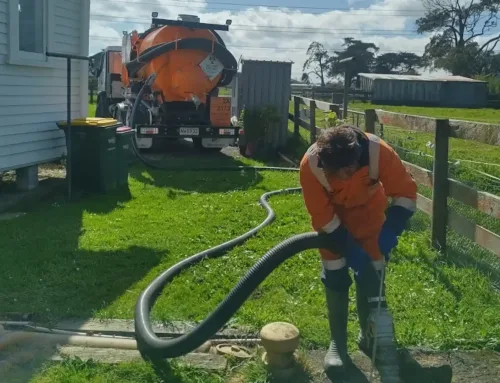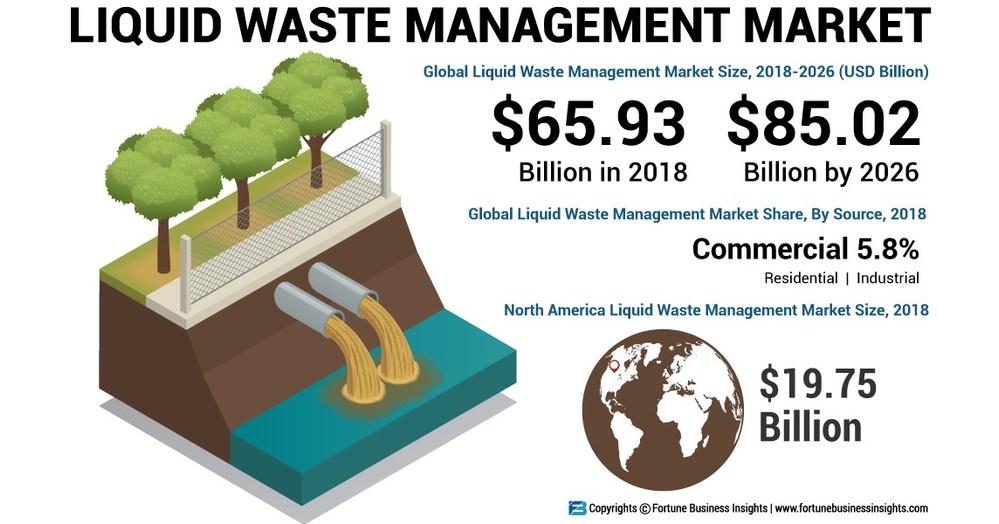The Greatest Guide To Reclaim Waste
The Greatest Guide To Reclaim Waste
Blog Article
What Does Reclaim Waste Do?
Table of ContentsSome Known Incorrect Statements About Reclaim Waste 3 Easy Facts About Reclaim Waste ExplainedAll About Reclaim Waste7 Simple Techniques For Reclaim WasteThe 4-Minute Rule for Reclaim Waste
Explore the types, incidents, and types of fluid waste. Domestic sewage waste refers to the waste and products from a residential septic system. This kind of waste is produced by humans in houses, colleges, and other structures. This only consists of sewage-disposal tanks that have a drain field. The appropriate monitoring and disposal of domestic sewer waste require liquid waste to be moved to a sewage therapy plant where the proper methods and tools are applied to detoxify and get rid of waste.
Industrial waste frequently consists of prospective dangers, such as flammable materials or a blend of liquid and solid waste items, and calls for an advanced and comprehensive disposal process. The disposal of industrial waste generally includes the purification of waste before transportation to make certain safe and appropriate disposal. Hazardous waste is developed from byproducts and overflow of commercial procedures and manufacturing.
This kind of waste can not use the exact same sewer management transport or procedures as septic or industrial fluids. The hazardous waste management procedure needs the examination and testing of fluid waste before it undergoes the disposal process (liquid waste disposal). Runoff waste is the fluid waste that originates from runoff and excess stormwater in extremely inhabited locations or cities
Drainage waste can create contamination and flooding otherwise dealt with appropriately. Find out more about drain cleansing and waste management. Making sure proper waste monitoring can stop catastrophes and minimize environmental damage. Both people in household setups and specialists in business or manufacturing markets can gain from understanding the procedures and guidelines of liquid waste management.
9 Easy Facts About Reclaim Waste Shown
Call PROS Solutions today to find out regarding our waste management and disposal services and the correct methods to look after the liquid waste you create.
(https://gravatar.com/maximum5d830db060)Do you recognize what takes place to your water when you disengage, purge the bathroom or drain the cleaning maker? No? Well, it's worth recognizing. This so-called 'wastewater' is not just an important resource but, after therapy, will be launched to our land, waterways or the sea. Used water from commodes, showers, baths, cooking area sinks, laundries and commercial processes is referred to as wastewater.

water used to cool down equipment or tidy plant and equipment). Stormwater, a form of wastewater, is runoff that flows from agricultural and city locations such as roof coverings, parks, yards, roads, paths and gutters into stormwater drains, after rainfall. Stormwater moves untreated directly to local creeks or rivers, eventually reaching the sea.
6 Easy Facts About Reclaim Waste Explained
In Queensland, most wastewater is treated at sewage treatment plants. Wastewater is transferred from domestic or commercial sites through a system of sewage systems and pump stations, called sewage reticulation, to a sewer treatment plant. City governments build, keep and operate most sewage therapy plants. Operators are certified under the Environmental Defense Act 1994 to discharge treated wastewater at an acceptable ecological requirement into waterways.
The Division of Natural Resources encourages regional governments concerning handling, operating and preserving sewage systems and therapy plants. In unsewered areas, regional governments may call for owners to mount specific or house sewer treatment systems to deal with residential wastewater from toilets, kitchen areas, restrooms and laundries. The Division of Natural Resources authorises making use of home systems when they are verified to be effective.
In some new class, treatment of some stormwater to eliminate trash, sand and crushed rock has actually started making use of gross toxin traps. Wastewater therapy takes place in 4 phases: Gets rid of solid issue.
Utilizes tiny living microorganisms recognizes as micro-organisms to damage down and eliminate remaining dissolved wastes and fine particles. Micro-organisms and wastes are incorporated in the sludge.
The Best Guide To Reclaim Waste
Nutrient elimination is not available at all sewage therapy plants since it requires expensive specialized tools. Clear liquid effluent generated after therapy might still consist of disease-causing micro-organisms - liquid waste removal.

This normally means wastewater needs to be treated or pollutants eliminated before it can be released to rivers. The majority of wastewater moves into the sewerage system. Under the Act, regional federal governments carry out authorizations and permits for ecologically pertinent tasks (Periods) entailing wastewater releases that could have a neighborhood influence. The department carries out approvals and licences to Periods entailing wastewater launches that could have a local or statewide effect.
Getting The Reclaim Waste To Work
Or else, samples are considered research laboratory evaluation. Commonly lots of tests are visit the website required to develop the levels of each of the different pollutants such as oils, hefty steels and pesticides in water. Monitoring offers valid information regarding water high quality and can validate that permit problems are being met. The info acquired via monitoring supplies the basis for making water quality choices.
Report this page